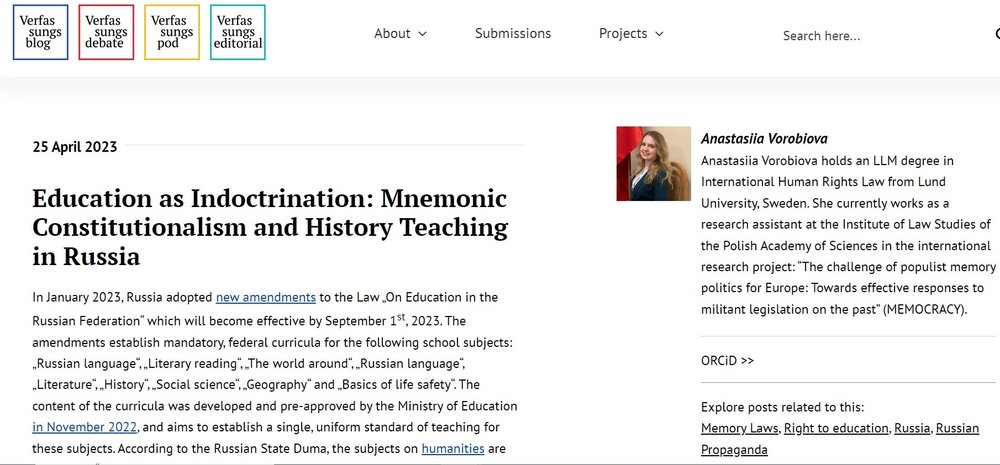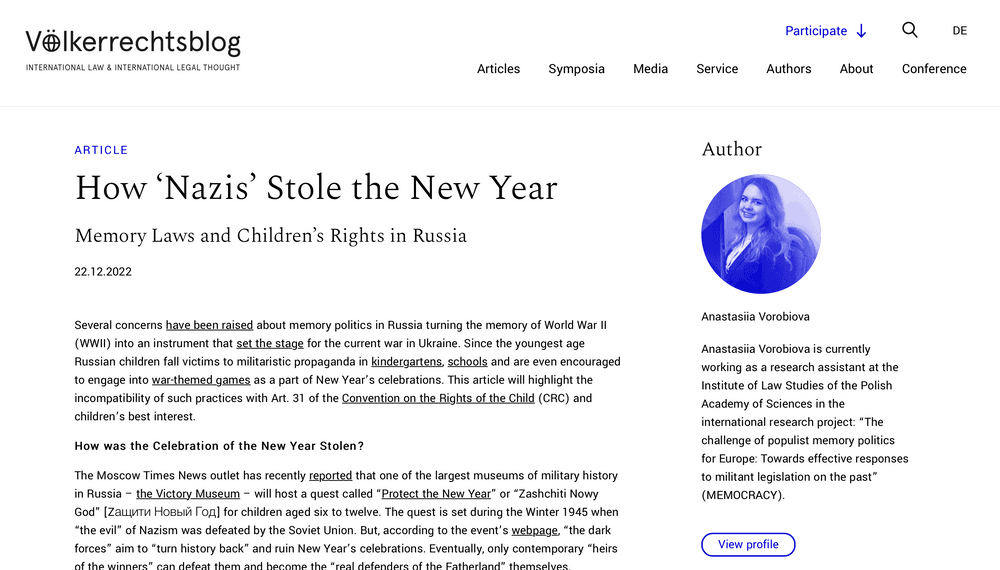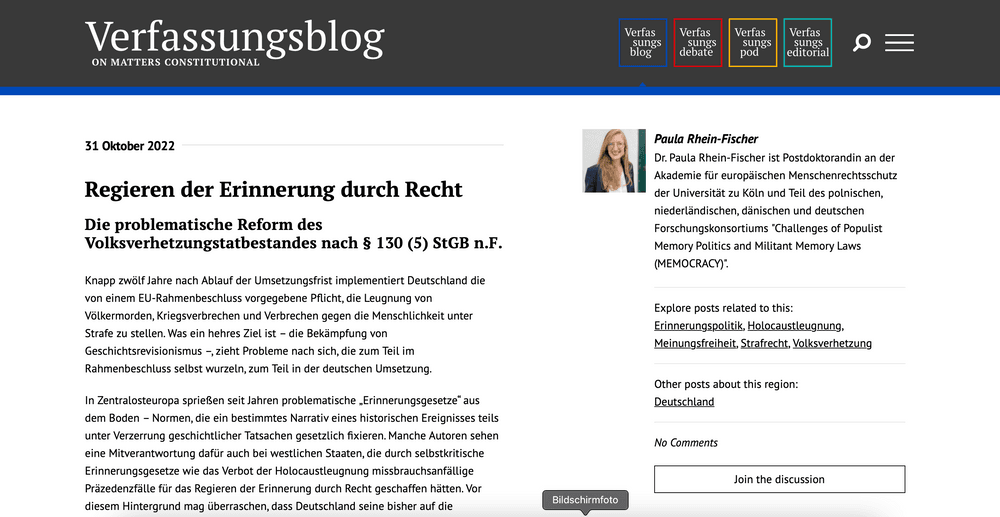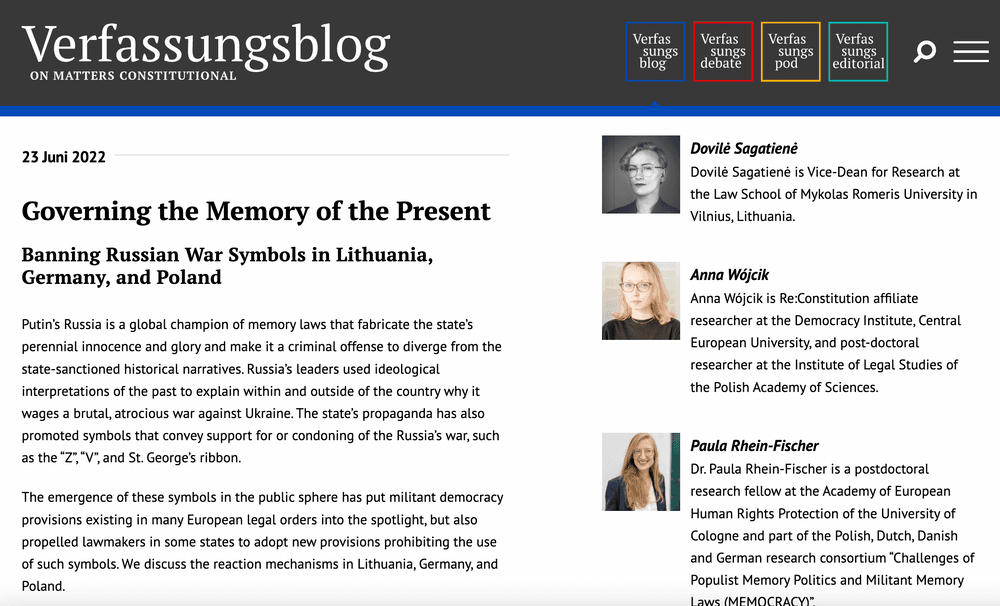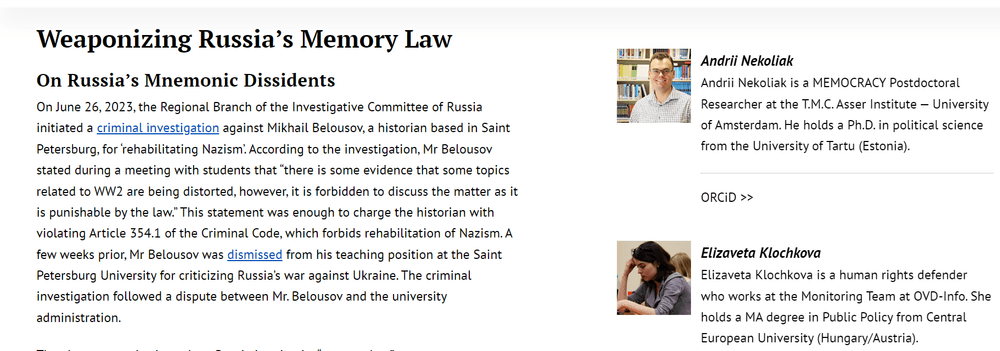
Dr. Andrii Nekoliak has published in Verfassungsblog on Russia’s ‘mnemonic dissidents’
In a new blog post for Verfassungsblog, researchers Andrii Nekoliak (Dutch Team of the MEMOCRACY) and Elizaveta Klochkova (OVD-Info), describe how the Russian Federation is using its “memory law” to put pressure on potential critics of the Russian attack on Ukraine. This Russian law is used to create a mood of paranoia and fear among the population, and a feeling as if the country were in a besieged fortress. The authors think that Russian regime may increasingly use Article 354.1 to purge anti-war dissent.

